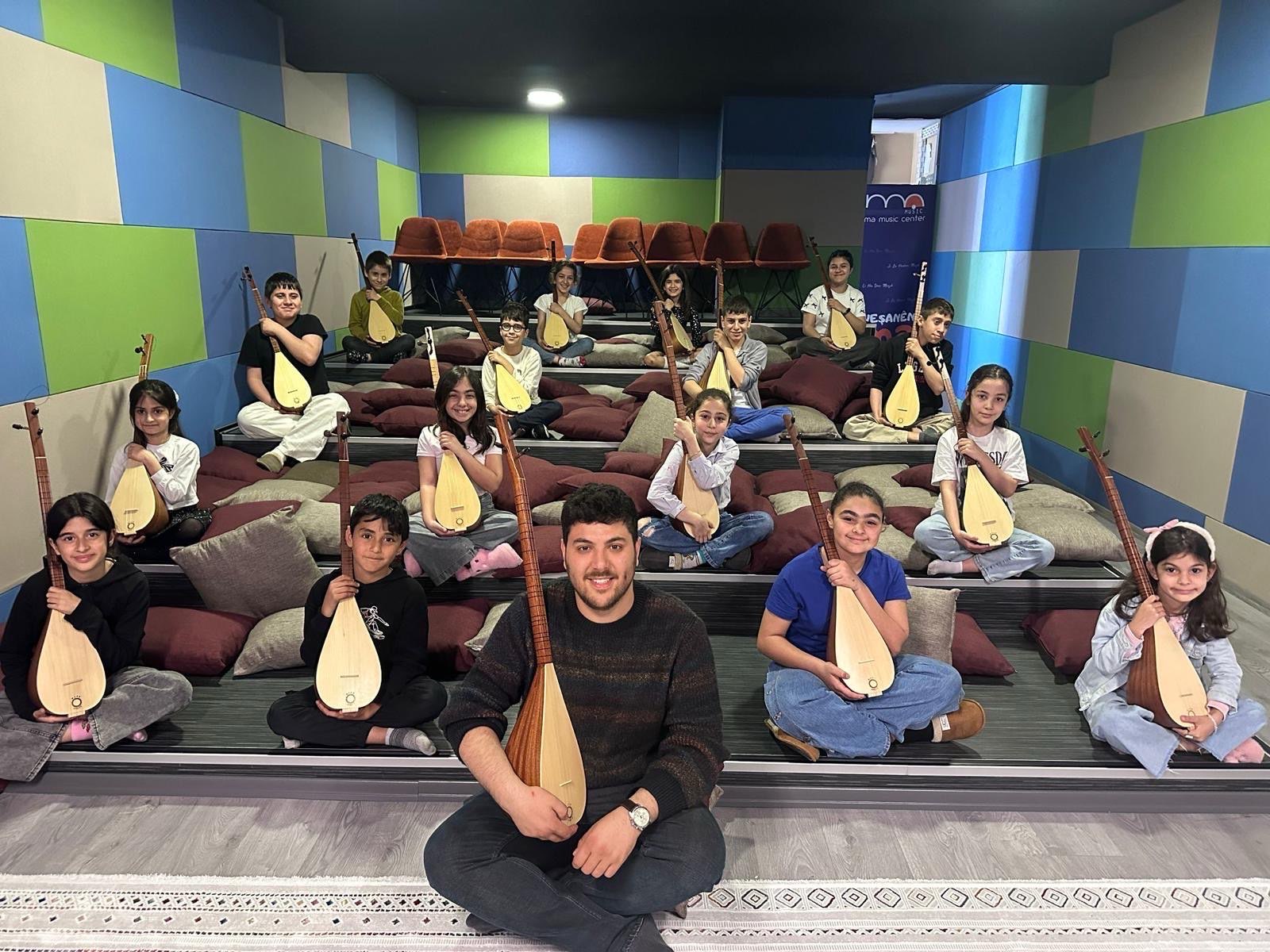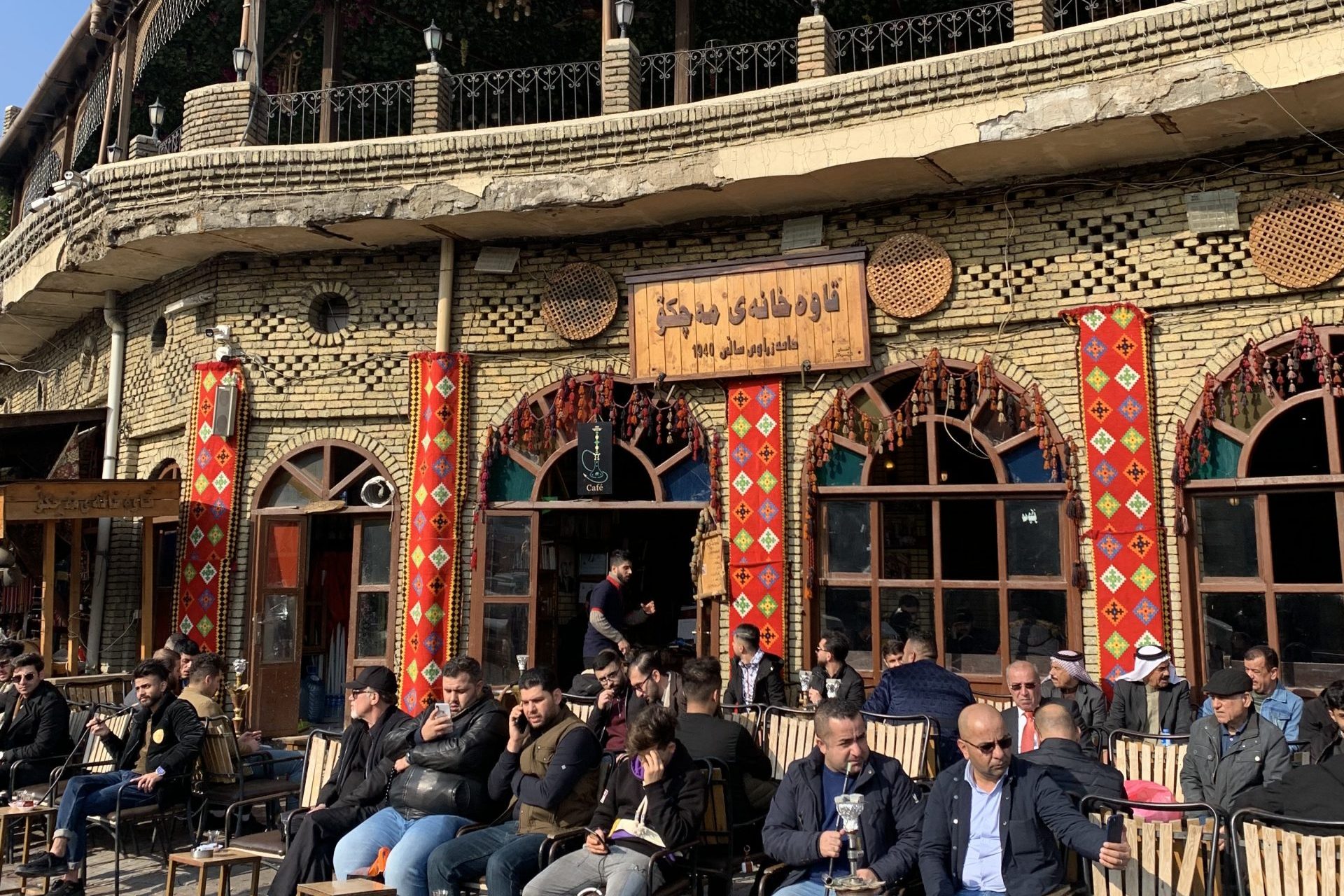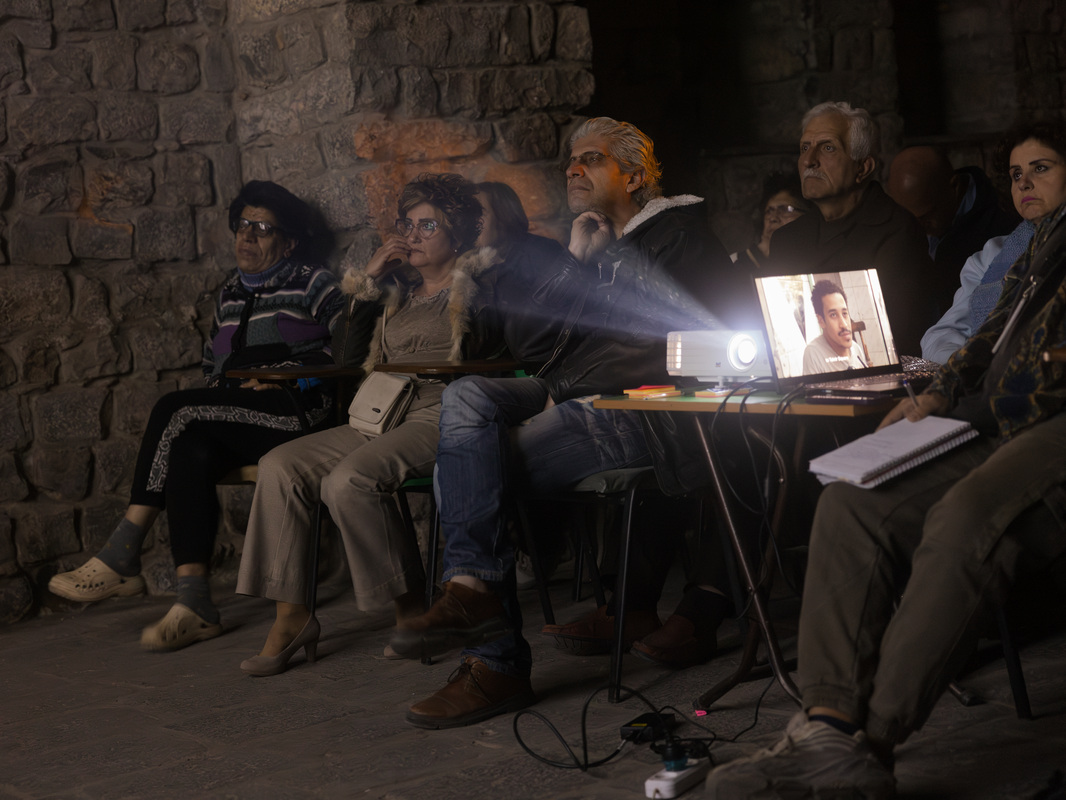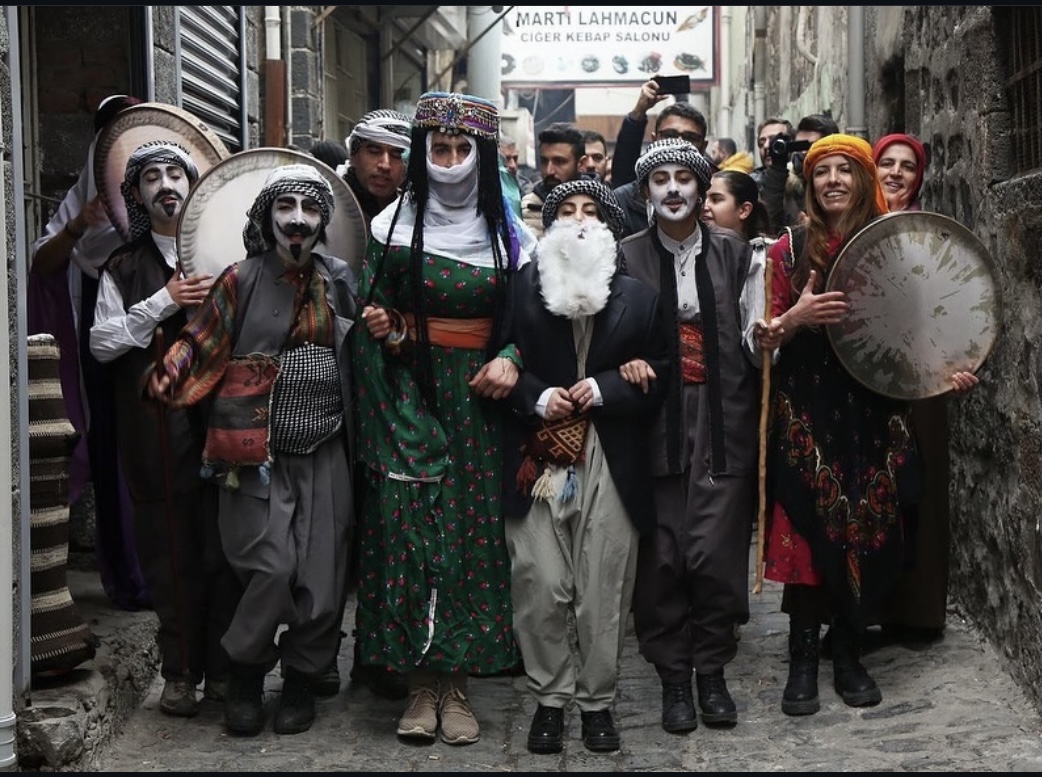Ma Music: Keeping Kurdish Alive in Musical Notes with Children
Ma Music Center in Amed, founded in 2017, is more than just a school; it’s a hub where Kurdish children keep their language, culture, and memory alive through song. Ma Music was established by the people who remained after the Aram Tigran Conservatory was closed by the trustee in 2016, to ensure that children are not left without their traditional music. The name, “Ma,” derives from the Kurdish word for “those who remain.”
After Amed, Ma Music opened a branch in Istanbul in 2024 – Egîdê Cimo – which drew great interest, given its unique standing in the city with the largest Kurdish population in Turkey. As part of the Amargi, we visited Egîdê Cimo in Istanbul. There, we witnessed the families’ insistence on Kurdish culture and language as well as the children’s passion. We spoke with the instructors about what makes Ma Music unique, especially considering the pressure on the Kurdish language today.
What Does Ma Music Do?
At Ma Music, children start hearing Kurdish music even in the womb.
At Ma Music, children start hearing Kurdish music even in the womb. Women can start attending these workshops from the 16th week of pregnancy. Instructors with key pedagogical training play games, teach govend (a Kurdish folk dance), and offer solfège lessons for children aged 0–5. This group, called Zarok Ma (‘children’ in Kurdish), currently studies in a separate school in Amed. In Istanbul, demand for this age group is very high, and they make up half of the student population.
For children aged 6–12, the school offers Kurdish language lessons, stranbêjî(Kurdish singing) lessons, theory, solfège, and instrument lessons – all taught in Kurdish. The older group, aged 17–25, receives professional music training. After completing conservatory-level training, these students can become instructors at Ma Music. In fact, two instructors at the Egîdê Cimo branch are graduates of Ma Music’s Conservatory and now teach there.
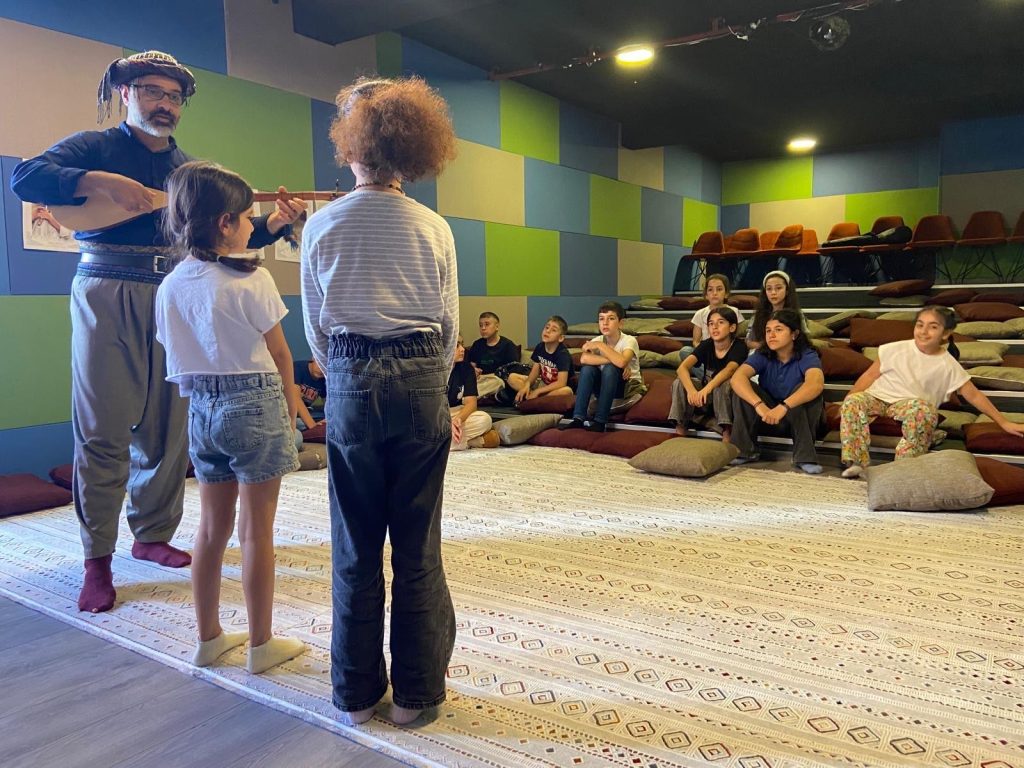
Music Everywhere, Music for Everyone!
Ma Music’s slogan is: “Li Her Derê Muzîk, Ji Bo Her Kesî Muzîk!”— ‘Music everywhere, music for everyone!’This is best exemplified by its mobile music workshops, called Gerok Ma(‘voyager’ in Kurdish). The Gerok Ma team travels worldwide to ensure that children are “not left without music.” Instrument teacher Abdullah Yağmahan explains: “Our goal is to reach and engage children who have no alternatives, no opportunities, or cannot leave their villages.”
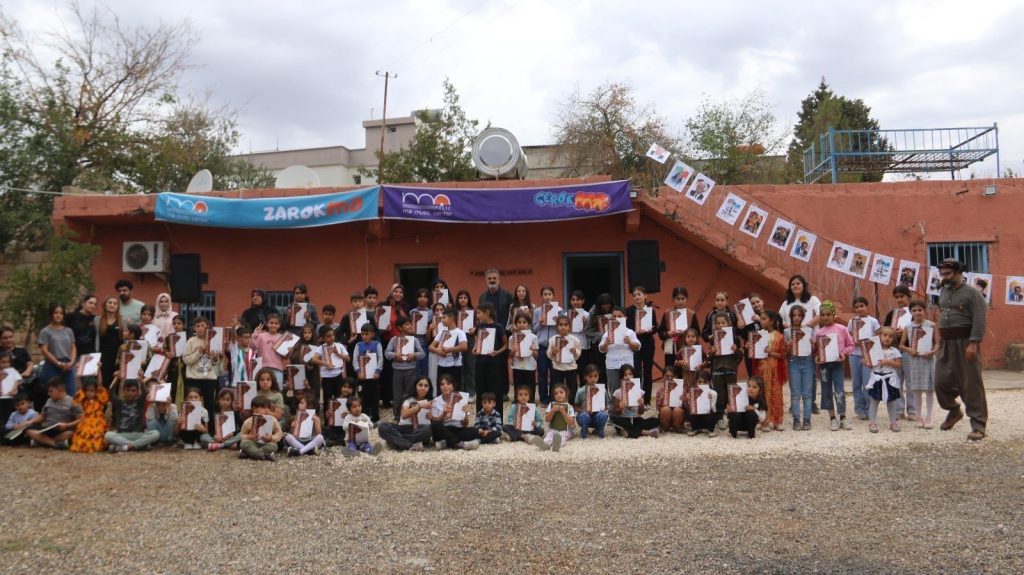
Sometimes, Gerok Ma creates 3-4 teams and goes wherever they can. In these mobile workshops, they gather children for two-hour sessions of music, rhythm, and orchestra practice.
Children Learn Dengbêjî Sounds
The music education at Ma Music is designed to keep Kurdish culture alive. This is emphasized in singing, instrumental lessons, and theory, and this emphasis is what makes the organization unique. Stranbêjî teacher Mehmet Öğel says one of his goals is to train children to perform dengbêj tunes. Children, especially those growing up in Istanbul who have never spoken Kurdish, initially struggle with some letters and sounds, but they progress very quickly. While the children sing in groups, they also insist on singing on their own.
Ma Music has also published a book titled Repertuara Stranbêjiyê (Dengbêj Repertoire) to support Kurdish music education for children
Öğel spoke to The Amargi and emphasized that their focus is on Kurdish music and culture, and that they aim to create a space to protect Kurdish culture and language against assimilation. He says one of the main reasons Ma Müzik opened a branch in Istanbul was the lack of music programs for children in Kurdish culture, and adds, “The main goal here is not just music. There are alternatives in Istanbul, and even so-called Kurdish music studios exist. But the terms and styles are not ours, and nothing is truly rooted in Kurdish culture.” Their priority is for Kurdish children to think and create in their own language and with their own voice.
Many parents hope their children will continue their studies here. Meanwhile, some parents wait for their children at this location when they are following their courses, socializing with other families, and becoming part of the place’s memory.
Ma Music has also published a book titled Repertuara Stranbêjiyê (Dengbêj Repertoire) to support Kurdish music education for children. The book gathers 110 children’s songs from different Kurdish dialects and regions, helping preserve linguistic and musical diversity. Children can access lyrics, sheet music, and song videos via a QR code app.
Passing Kurdish Culture from the Past to the Future
“A child’s dreams need to happen in their mother tongue. If you don’t dream in your language, you are still at the edge of assimilation.”
At Ma Music, children also take Kurdish language lessons. Some children coming to Egîdê Cimo may not know Kurdish at all. Mizgin Durak, a Kurdish teacher, says that children progress very quickly: “There’s been a visible, tremendous transformation in a short time. When I ask a question in class, the children compete with each other to answer.” The children’s desire to learn the Kurdish language influences others, bringing more children to Egîdê Cimo and expanding its reach.
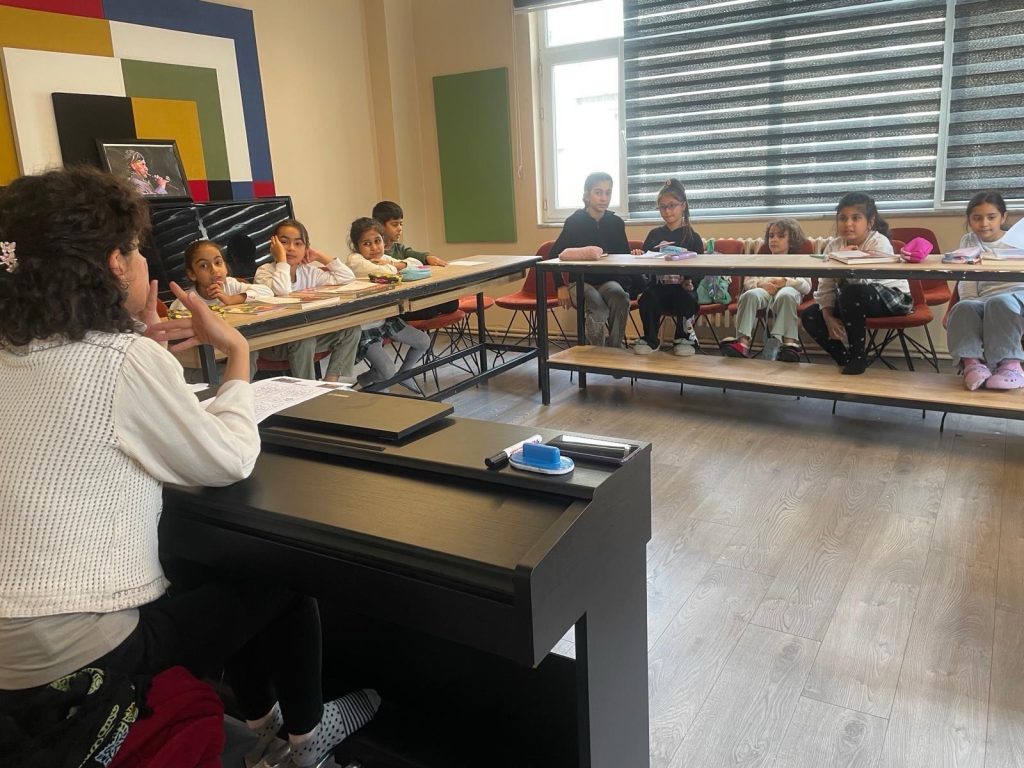
Durak says her initial goal is to help children understand their mother tongue, even if they do not speak it fully. She adds, “A child’s dreams need to happen in their mother tongue. If you don’t dream in your language, you are still at the edge of assimilation. In a way, we provide Kurdish education to prevent assimilation policies.” She emphasizes that in a city like Istanbul, with a large Kurdish population, Egîdê Cimo allows children to learn their language, songs, and lullabies, acting as a space for passing Kurdish culture from the past to the future.
Standing Strong Through Solidarity
Ma Music was founded after the government closed the Aram Tigran Conservatory in Amed in 2016. Despite pressures and bans on Kurdish, it has survived and is one of the few remaining Kurdish institutions, giving it a unique position. Yağmahan explains how they have survived this oppression: “We never gave up, we never stopped. But behind this, there are families in Amed who supported us both financially and morally. Without these families, we couldn’t have survived.”
Thanks to this solidarity, Ma Music continues to be the voice of the Kurdish language, culture, and memory from Amed to Istanbul and Europe, ensuring that every child can sing in their own language and hear Kurdish in their dreams.
Şilan Bingöl
Şilan Bingöl is an independent researcher who studied sociology at Galatasaray University and Ecole Normale Supérieure de Lyon. Her master's thesis is on media sociology.

